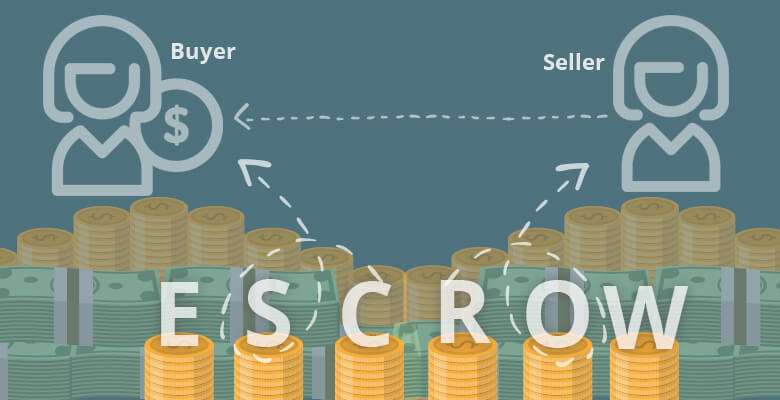What Exactly Is Escrow?
Escrow is a legal term that refers to a financial agreement in which a third party holds an asset or money on behalf of two other parties who are in the process of completing a transaction.
The escrow agent is in charge of escrow accounts. Only after predetermined contractual obligations are met does the agent release the assets or funds (or upon receiving appropriate instructions). Escrow can be used to hold money, securities, funds, and other assets.
- Escrow is a neutral third party who holds assets or funds before they are transferred from one party to another in a transaction.
- The funds are held by a third party until both the buyer and seller have met their contractual obligations.
- Escrow is commonly associated with real estate transactions, but it can apply to any situation in which money is transferred from one party to another.
- Escrow can be used when purchasing a home as well as throughout the life of a mortgage.
- Digital escrow is becoming more popular as a way to provide secure online transactions for valuable items such as art or jewelry.
Escrow is a financial process used when two parties are involved in a transaction and their obligations are uncertain. Escrow can be used in a variety of situations, including internet transactions, banking, intellectual property, real estate, mergers and acquisitions, law, and others.

Consider a company that sells goods on a global scale. That company needs assurance that it will be paid when the goods arrive at their destination. The buyer, for his part, is only willing to pay for the goods if they arrive in good condition.
The buyer can entrust the funds to an escrow agent, who will disburse them to the seller once the goods arrive in a suitable condition. Both parties are thus protected, and the transaction can proceed.
Online Shopping and Escrow
Like real estate and stock market escrow, online escrow protects the buyer and seller from fraud or nonpayment. For online product sales, an online escrow service acts as a third party. Buyers pay the escrow service, which holds the funds until the product is delivered. One can use a digital escrow platform like Vouch for carrying out a transaction without the need to create an escrow account.
Once the product has been delivered and verified, the funds are released to the seller by the online escrow service. Escrow services are ideal for high-value items like jewelry or art. The service is paid for by the online escrow company.
Escrow can be used for a variety of transactions, such as real estate, stock issuances, and online sales. The buyer's money is held in an escrow account until the transaction is completed or the buyer is able to receive or verify the product's condition.
When the buyer approves the transaction, the money is released from the escrow account to the seller. For performing the third-party service, the company managing the escrow account usually charges a fee.
To know where to use an escrow, read - Where do you require to have an escrow account? Where do you require to have an escrow account?
A bank account
A bank account is a financial account maintained by a bank or other financial institution in which the bank's and a customer's financial transactions are recorded. Each financial institution determines the terms and conditions for each type of account it provides, which are classified into commonly understood categories such as deposit accounts, credit card accounts, current accounts, loan accounts, and a variety of other types of accounts. A customer may have multiple accounts. Once an account is opened, funds entrusted to the financial institution on deposit by the customer are recorded in the account designated by the customer. Loan loaders can be used to withdraw funds.
Bank accounts may have a positive, or credit balance, when the financial institution owes the customer money, or a negative, or debit balance when the customer owes the financial institution money. [1] Accounts with credit balances are referred to as deposit accounts, while accounts with debit balances are referred to as loan accounts. Some accounts have the ability to switch between credit and debit balances.

Some accounts, such as savings accounts, are classified based on their function rather than the nature of their balance. Account numbers are used by financial institutions to identify each account, which is important because a customer may have multiple accounts.
The most common type of account is - Savings account
A savings account is a place where you can keep your money over time. Savings accounts aren't meant to be used for day-to-day spending—the number of withdrawals or transfers from a savings account is usually limited to six per month. This type of account is ideal for storing an emergency fund or savings for long-term financial goals, and your balance may earn interest.
When to use a bank account and when to use an escrow account?
A bank account should only be used when you're making a transaction with someone you know. A bank account transaction might prove to be a bad option when dealing with people on the internet. Unlike escrow, you can not get your money back from the person once it is transferred. While in escrow can be used in places where you suspect fraud because you can get your money back in case of fraud or scam.






